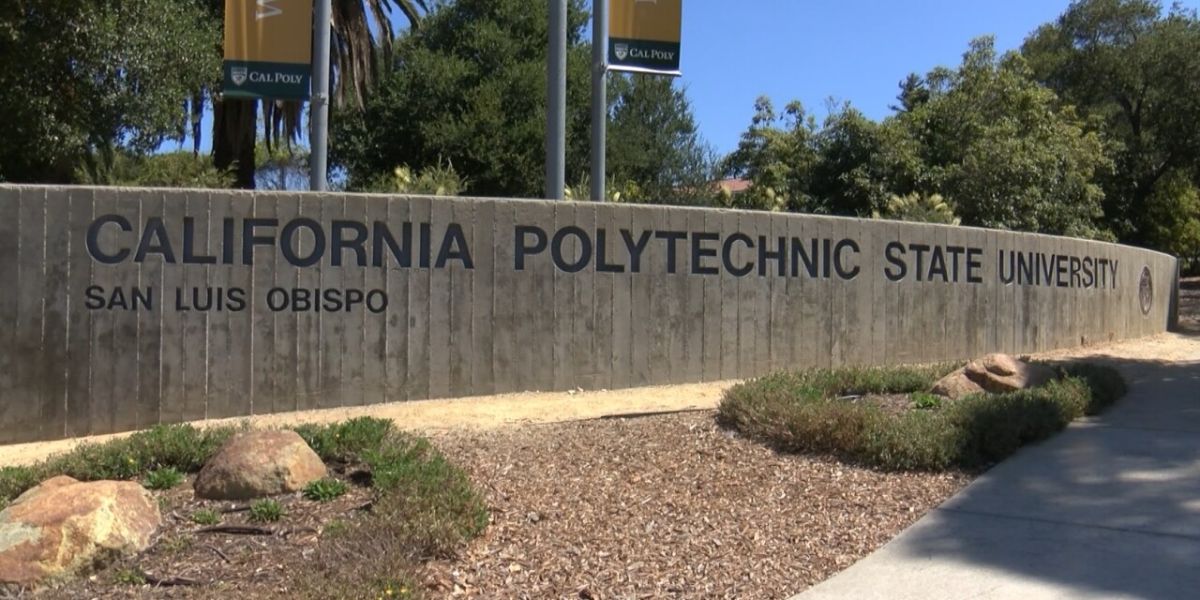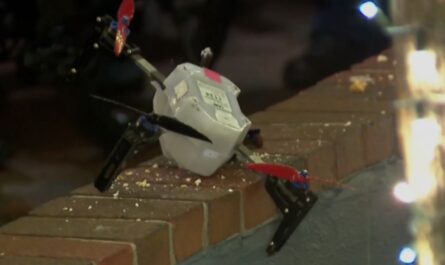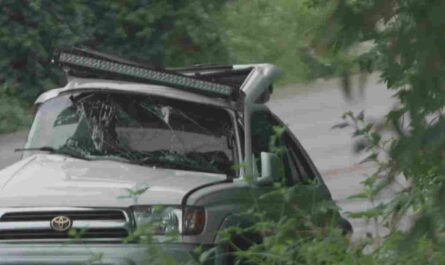Cal Poly was vandalized last week after five activists spray-painted the financial aid office walls with pro-Palestinian tags, just a month after President Jeffrey Armstrong spoke before Congress about the school’s handling of antisemitism on campus.
- File Photo Courtesy Of Ethan Gutterman
- REPEAT OFFENSE Pro-Palestinian protest is still active on Cal Poly’s campus from this protest in May 2024 to the recent vandalism of the Financial Aid office on June 4, being tagged with “Free Palestine,” and “Let Gaza live” along the walls, floors, and furniture.
Armstrong sent a communication after the vandalism occurred on June 4, explaining that the five activists had “stormed” the university’s administration building that day and spray-painted graffiti on the walls of the financial aid and student accounts office, as well as its windows, furniture, computers, carpet, and floors.
Students and staff were present at the time of the incident, but no one was harmed, Armstrong’s letter said.
“I want to be very clear that there is no room at Cal Poly for this kind of behavior and activity,” Armstrong said. “We will not stand for illegal attacks against our institution, its employees, and its students. There is simply zero tolerance for it.”
Assistant Vice President for Communications and Media Relations Matt Lazier told New Times via email that the tags included phrases like “Free Palestine,” “Free Gaza,” “Cal Poly Divest,” and “Let Gaza Live.”
Of the five activists, Lazier confirmed that two of them—Theodore Lee, a current Cal Poly student, and Alejandro Bupara, who has no current affiliation with the university—were arrested. The other three suspects remain unidentified.
According to SLO County court records, both Lee and Bupara were previously arrested at a pro-Palestine protest in May 2024. They were charged with misdemeanors for violent and unlawful assembly, but as of June 11 there had been no new charges filed against the two after the June 4 offense.
Lazier said that the Cal Poly Police Department is continuing to investigate the matter, and the university didn’t have any further information to share as of press time.
Cal Poly police didn’t return a request for comment before press time.
This wasn’t the first case of vandalism at Cal Poly amid the Israel-Gaza war.
In October 2024, pro-Palestine graffiti covered areas of the Engineering Plaza, the University Union, and the Grand Avenue campus entrance, although no suspects were identified, according to Lazier.
Instances like vandalism, protests, and a Cal Poly professor’s alleged verbal harassment of Jewish students placed Cal Poly on the nation’s radar after receiving an “F” grade from the Anti-Defamation League for not addressing antisemitic tensions on campus amid the Israel-Gaza war.
Armstrong eventually was called to speak at a congressional hearing on May 7, where he promised to better address antisemitism and hold individuals accountable for their actions. He reiterated those sentiments in his June 4 letter about the recent vandalism.
“Those participating in violence and criminal activity which endangers others will be expelled (if they are students), arrested, and held fully accountable,” he wrote. “Anyone who views this kind of shortsighted, disgusting, and illegal activity as acceptable has no place at Cal Poly and will be rooted out.”




